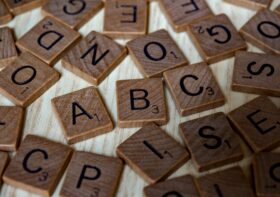Teaching Triumph, or Fail?

When my daughter was younger, I had a favourite parenting podcast. Each episode started with the three hosts sharing a moment from their week: either a ‘Parenting Triumph’ or ‘Parenting Fail’. The triumphs were always those minor but momentous wins of day-to-day toddler-management: the nap went well, and it transformed your day.
But the fails were the best. The hosts would help each other reframe the ‘fail’ as something less dramatic than the exhausted-parent brain imagined; the humour and empathy of fellow parents putting it all into perspective.
I think we should check in like this as teachers. I’ve had plenty of Teaching Fails over the years; seemingly well-planned lessons which never seemed to take off. Or worse, being swept up in the illusion of classroom ‘engagement’ only to be brought back down to earth when the students’ written work reflected none of my learning goals.
Being able to talk about these moments is important, not least for our own mental health. Once the classroom door closes it can be easy to believe you are the only one finding this teaching-lark hard. Scrolling through Edu-Twitter a while ago I came across a thread sharing stories of lessons-gone-wrong. Thankfully I’ve never tried to explain the circulatory system by setting up a hockey match using red and blue balls, only to realise the schoolyard was on a slope. But my heart went out to the teacher who did. In one way or another, we’ve all been there.
Teaching, like parenting, is hard: the intellectual rigour of subject expertise, the science of the learning process, the craft of selecting the right words to bring clarity to the complexity of academic thought. And underpinning all of this, our teacher-tool-kit of behaviour management, the consistent routines making the classroom a safe and inclusive place to learn.
These challenges deserve more attention.
When we talk about the cognitive demands of teaching, we raise its status. Our expertise is deployed when we are problem solving, getting curious about the classroom losses, embracing the powerful data acquisition of failure. There is a confidence in acknowledging: ‘we haven’t got this right….yet’.
I heard someone say recently that learning from failure was a bit like kicking off the bottom of the swimming pool. Letting your toes touch the bottom gives you the energy to bounce back up. I have my best ideas when something has gone wrong. Granted, not immediately, and I am lucky enough to have colleagues who listen with the same humour and empathy as those parenting-podcast hosts.
But I love these conversations: the pooling of collective wisdom, the bouncing around of solutions, the excitement of the experiment and potential teaching triumphs ahead.
There is vulnerability in sharing our failures. But we are better teachers, and stronger schools when we do so.



Sue Burvill-Shaw
Dear Louise, I enjoyed this blog very much. In particular, it reminded me of the empowering ability of expert teachers who were and are prepared to sit in a staffroom at lunch and ‘confess’ to the monumental fail last lesson with ‘that class’ or ‘that kid’. The first time I, as a first year, heard a ‘hero’ do this I was shocked and delighted at the same time. Dear goddess! It wasn’t just me!. Then as she (my English HOD) and her ultra experienced colleagues swapped stories and laughed, I realised why these debriefs at lunch time were so vital. And I started to learn something equally important about life-time learning as a teacher. teaching is a science, a craft and an Art; all artists need to practice and refine to evolve.
Kelly Chase
I agree! It is the “fails” that we have as teachers that help us to be creative in finding solutions and in turn become better teachers.